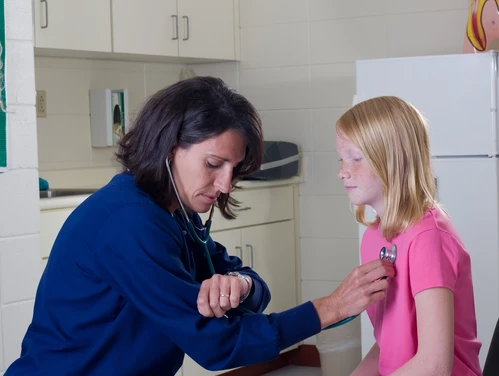Content Information
On this page...
Some common ear, nose and throat issues that school-aged children may face when accessing their education program:
Back to topEar pain
Middle ear inflammation is a common issue in children. Symptoms may include ear pain, fever or temporary hearing loss.
Back to topAllergies
Allergic rhinitis affects many children, causing symptoms such as sneezing, congestion, and itchy eyes, which can disrupt their focus while accessing their education program.
Back to topNose Issues
Nasal congestion can occur from viruses, illness and allergic responses. Nasal congestion occurs when the tissues lining the nose become inflamed and swollen, leading to a feeling of fullness and difficulty breathing through the nose.
Sinusitis is a non-inclusive example of a nose-related issue that causes facial pain, congestion and headaches, often leading to discomfort and missed school days.
Back to topThroat Issues
Sore throats are common in school-age children. A sore throat may be related to a viral or bacterial infection. If the sore throat is accompanied by other symptoms, encourage the learner’s family to communicate with their healthcare provider.
Back to topSpeech & Language Disorders
Untreated ear infections or chronic congestion can hinder a child's ability to hear and speak clearly, potentially affecting their language development.
Back to topGeneral actions to take if a child experiences an ear, nose or throat issue in their school or program:
Prevention is the key to maintaining good ear, nose and throat health in school-aged children. Here are some steps parents and caregivers can take:
- Promote annual well-child visits when communicating with parents: Encourage parents to schedule regular check-ups with a healthcare provider to catch and treat problems early.
- Encourage the child to practice good hygiene and model good hygiene:
- Remind children of proper handwashing steps.
- Remind children to cover their cough and sneeze into their elbow.
- Model these activities when working with children.
- Allergen Management: Ask parents for information on their child’s allergy identification (if applicable) and steps to manage allergens that trigger allergic reactions.
- Follow the student’s emergency action plan (if applicable).
- Recommend that parents communicate with their child’s healthcare providers at the first sign of an ear, nose, or throat problem to prevent complications.
